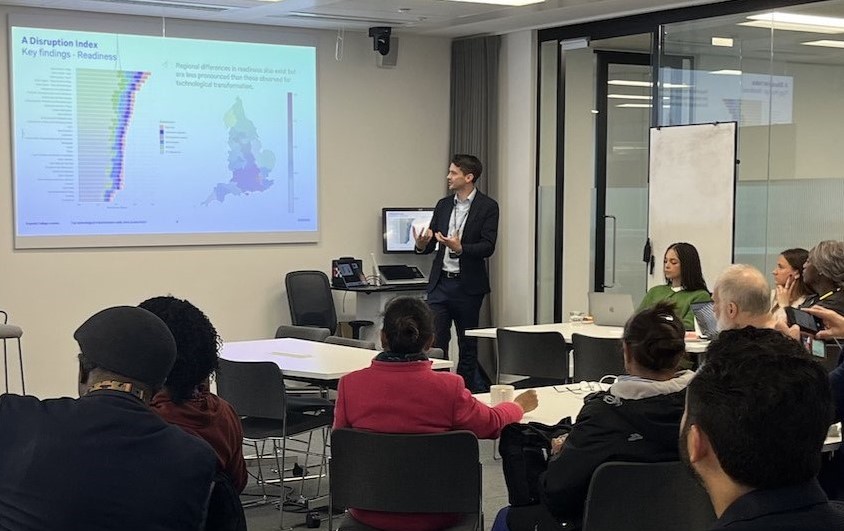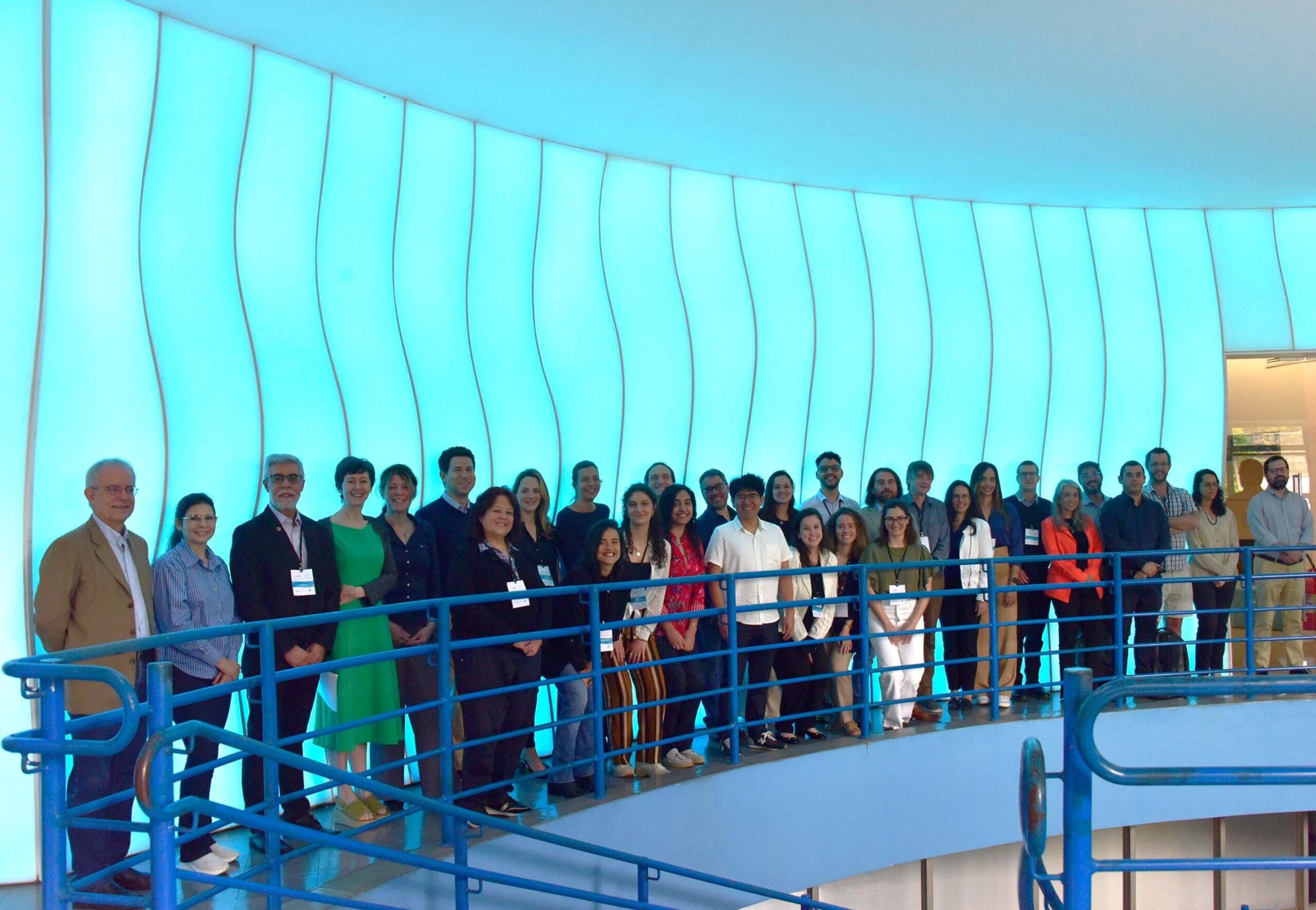
In June, I-X had the pleasure of hosting the launch of “Disruption Index Interactive Report” and “Patterns of co-occurrent skills in UK job adverts report”, recently published by the Institute for the Future of Work (IFOW). Both reports are part of the Pissarides Review into the Future of Work and Wellbeing, led by Professor Christopher Pissarides, a 2010 Nobel Prize in Economics winner. Funded by the Nuffield Foundation, the review is carried out by the IFOW in partnership with Imperial College London and Warwick Business School. The launch event was co-organised by the IFOW and Imperial academics, Professor Mauricio Barahona and Dr Jonathan Clarke from the Department of Mathematics, who are members of the Pissarides Review project team.
Prof. Barahona and Dr Clarke, I-X research initiative leads, are authors of the “Patterns of co-occurrent skills in UK jobs adverts” working paper, which examines the unequal distribution of skills across the UK labour market. The report reveals the geographical co-occurrence of specific skills in various parts of England, highlighting regional differences in skills networks’ distribution. Dr Clarke is also a co-author of “Disruption Index”, a tool measuring the scale of technology adoption of UK regions and their readiness to implement future innovations. Launched during the June event, the Interactive Report and the Dashboard accompanying the Disruption Index offer a comprehensive overview of the trajectories of technological transformation across the country, providing insights into the challenges of building an innovation ecosystem on the national scale.
The highlight of the event was an expert panel, featuring Dr Jonathan Clarke, Professor Sir Chris Pissarides, Dr Anne-Marie Imafidon, and Phil Smith. The panellists discussed the impact of new technologies, such as Artificial Intelligence, on the labour market and their potential to drive productivity across the country, as well as the risks and opportunities of framing new technologies as the ultimate means of stimulating economic growth. Bringing together academics, policymakers, and business leaders, the event provided a platform to reflect on how tools such as the Disruption Index Interactive Report can facilitate the creation of more effective policies addressing regional inequalities.
Prof. Mauricio Barahona said: “In welcoming policymakers and business leaders to I-X, we saw the power of sharing Imperial’s [or ‘The Pissarides Review’s] cutting-edge research to inform the ongoing debate on how new technologies are changing work in the UK.”
The two reports launched during the event are part of a larger body of work examining the impact of technological transformation on regional growth, work conditions, and skills distribution, conducted at Imperial and led by Dr Clarke.
Dr Jonathan Clarke said: “We know that new technologies are changing the world of work, but our reports reveal that these changes are not happening equally across the country. It is vital that regional administrations have the knowledge to understand their local skills shortfalls and put policies in place to help both employers and employees bridge emerging skill gaps.”
Asking urgent questions about AI’s potential to exacerbate regional inequalities, Dr Clarke’s and Prof. Barahona’s research not only deepens our understanding of the social and economic consequences of technological progress, but also provides invaluable insights that can help create more sustainable policies capable of mitigating the risks of technological transformation.
The work on the Pissarides Review is nearing completion, with additional outputs, including a report on geographic analysis of skills requirements across the UK, expected to be published in the coming months. The final report, summarizing four years of research, will be published early next year.



